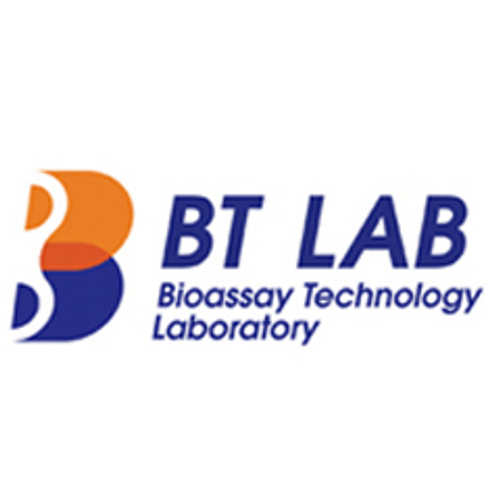Product Description
Mouse Proliferating cell nuclear antigen (PCNA) ELISA Kit | AE28390MO | Abebio
Species Reactivity: Mouse (Mus musculus)
Abbreviation: PCNA
Alternative Name: MGC8367; DNA polymerase delta auxiliary protein|cyclin
Application: ELISA
Range: 0.156-10 ng/mL
Sensitivity: 0.059 ng/mL
Intra-Assay: ≤5.7%
Inter-Assay: ≤10.2%
Recovery: 1, 11
Sample Type: Serum, Plasma, Other biological fluids
Detection Method: Sandwich
Analysis Method : Quantitive
Test Principale: This assay employs a two-site sandwich ELISA to quantitate PCNA in samples. An antibody specific for PCNA has been pre-coated onto a microplate. Standards and samples are pipetted into the wells and anyPCNA present is bound by the immobilized antibody. After removing any unbound substances, a biotin-conjugated antibody specific for PCNA is added to the wells. After washing, Streptavidin conjugated Horseradish Peroxidase (HRP) is added to the wells. Following a wash to remove any unbound avidin-enzyme reagent, a substrate solution is added to the wells and color develops in proportion to the amount of PCNA bound in the initial step. The color development is stopped and the intensity of the color is measured.
Product Overview: Proliferating Cell Nuclear Antigen a protein that acts as a processivity factor for DNA polymerase delta in eukaryotic cells. It achieves this processivity by encircling the DNA, thus creating a topological link to the genome. It is an example of a DNA clamp. The protein encoded by this gene is found in the nucleus and is a cofactor of DNA polymerase delta. The encoded protein acts as a homotrimer and helps increase the processivity of leading strand synthesis during DNA replication. In response to DNA damage, this protein is ubiquitinated and is involved in the RAD6-dependent DNA repair pathway. Two transcript variants encoding the same protein have been found for this gene. Pseudogenes of this gene have been described on chromosome 4 and on the X chromosome.
Stability: The stability of ELISA kit is determined by the loss rate of activity. The loss rate of this kit is less than 5% within the expiration date under appropriate storage condition. The loss rate was determined by accelerated thermal degradation test. Keep the kit at 37°C for 4 and 7 days, and compare O.D.values of the kit kept at 37°C with that of at recommended temperature. (referring from China Biological Products Standard, which was calculated by the Arrhenius equation. For ELISA kit, 4 days storage at 37°C can be considered as 6 months at 2 - 8°C, which means 7 days at 37°C equaling 12 months at 2 - 8°C) .
 Euro
Euro
 USD
USD
 British Pound
British Pound
 NULL
NULL








